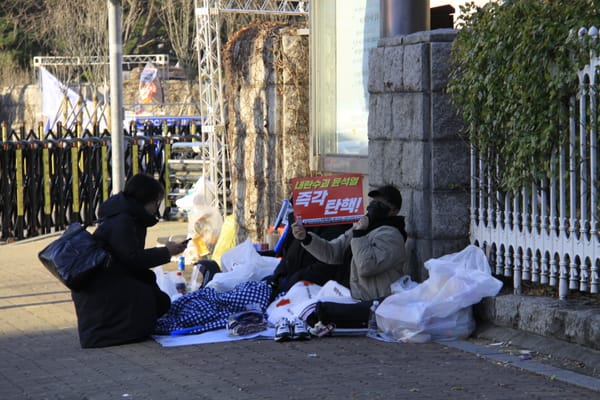Asia Undercovered Round-up: 18 August 2022
This issue: Indonesia's 2024 race heating up, already, India's growing military spending, and why one country wants to join ASEAN while another is leaving the Pacific Island Forum.
Undercovered last week
I want to see more of this. Read this data driven visual feature in Kontinentalist that helps us clearly understand how foreign investment is transforming Laos, showing who is financing projects, where’s it’s going, and what it might mean. Notably, the authors noted that it took months to gather all this data – an example of how difficult it is to report well on the real impacts of development (Pei Ying Loh & Zenn Wong)
It’s good to see more signs of growing solidarity between activists in Asia. For example, Nepal-based human rights groups condemned the recent executions of four democracy activists by the ruling Myanmar junta (Nepal Times)
For those struggling against the junta, all support is welcome and needed. The situation remains bad, and even worsening, putting even the country’s natural landscapes at risk. For HB Stiftung, Johanna Son interviews Win Myo Thu, a respected environmental campaigner, about how the country’s human, social and natural capital are “rapidly diminishing.”
India spends a huge amount every year on its military, about 15 percent of the government budget, a figure rising by nine percent a year. In this piece for Madras Courier, Jayant Kumar Pankaj dives into what is driving this, the impact it has on the country, and what it means for democracy and rule of law.
In Thailand, news reports have emerged showing that Pegasus spyware has been used to target activists and others, with the government the likely culprits. Some are calling for an investigation and a moratorium on spyware technology (Prachatai).
Worth reading: Zhar Zardykhan writes about growing concerns of increased human trafficking and sexual slavery in Central Asia, due to a deteriorating economic and political situation across the region (Global Voices).
In Pakistan’s largest city, Karachi, there is widespread luxury development taking place along the sensitive coastline – demolishing ecosystems, the livelihoods of coastal communities, and increasing the risk of disaster (Oonib Azam, The Third Pole).

Electoral Politics
Upcoming elections in Taiwan, where voters will head to the polls in November. In the past, midterms have been a test of the ruling party, in this case the Democratic Progressive Party, but this year, the pandemic and tensions with China will be as, if not more, important. A good overview by Brian Hioe and Lev Nachman in The Diplomat.
And the race for who will succeed Joko Widodo in Indonesia is heating with as many as four candidates potentially running – though all will depend on support from political elites. Alexander R Arifianto profiles the candidates, parties and dynamics at play in this primer for Indonesia at Melbourne.

Geopolitics
With a new (former) President, East Timor is looking to achieve a long-held goal – join the regional bloc ASEAN. It is, apparently, “Easier to Enter Heaven,” with all the blocks and barriers so far preventing ascension (Jayanty Nada Shofa, Jakarta Globe).
Meanwhile, in the Pacific, it’s a different story, as a country, Kiribati, is leaving a regional bloc, the 18-nation Pacific Islands Forum, in a blow to regional unity. Mong Palatino writes about what this means as powers, most notably China, increase their efforts to grow influence in the region (Global Voices).

Solutions Stories
A well-respected Islamic religious scholar, Ahmad Syafi'i Ma'arif, passed away earlier this year. He’s being remembered as a beacon of pluralism and inclusive Islam, leading many of Indonesia’s other faiths to pay tribute (Johannes Nugroho, AsiaOne).
And in Japan, Teshima island, once known for being home to a toxic dump, has successfully been restored after a long campaign by locals (Justin McCurry, The Guardian).

Asia Undercovered: Round-ups and in-depth analysis of the news, events, trends and people changing Asia, but not getting enough attention in the US media.



